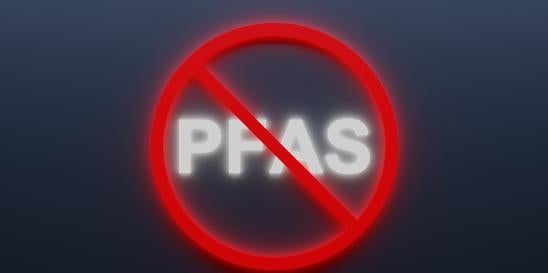We reported extensively on the landmark legislation passed in Maine in 2021 and Minnesota in 2023, which were at the time the most far-reaching PFAS ban in the United States. Other states, including Massachusetts and Rhode Island, have subsequently introduced legislation similar to Maine and Minnesota’s regulations. While we have long predicted that the so-called “all PFAS / all products” legislative bans will become the trend at the state levels, it is significant to note that California, the world’s sixth largest economy, recently introduced a similar proposed PFAS ban for consumer products.
The California proposed legislation, coupled with the existing legislation passed or on the table, will have enormous impacts on companies doing business in or with the state of California, as well as on likely future consumer goods personal injury lawsuits. The California PFAS ban must therefore not be overlooked in companies’ compliance and product development departments.
California PFAS Ban
California’s SB 903 in its current form would prohibit for sale (or offering for sale) any products that contain intentionally added PFAS. A “product” is defined as “an item manufactured, assembled, packaged, or otherwise prepared for sale in California, including, but not limited to, its components, sold or distributed for personal, residential, commercial, or industrial use, including for use in making other products.” It further defines “component” as “an identifiable ingredient, part, or piece of a product, regardless of whether the manufacturer of the product is the manufacturer of the component.”
While the effective date of SB 903’s prohibition would be January 1, 2030, the bill gives the California Department of Toxic Substances Control (“DTSC”) the authority to prohibit intentionally added PFAS in a product before the 2030 effective date. It also allows DTSC to categorize PFAS in a product as an “unavoidable use”, thereby effectively creating an exemption to the bill’s ban, although California exemption would be limited to five years in duration. Similar carve outs were also included in the Maine and Minnesota bans. In each instance, certain information must be provided to the state to obtain an “unavoidable use” exemption. In California, an “unavoidable use” exemption would only be granted if:
- There are no safer alternatives to PFAS that are reasonably available.
- The function provided by PFAS in the product is necessary for the product to work.
- The use of PFAS in the product is critical for health, safety, or the functioning of society.
If a company sells a products containing PFAS in the state of California in violation of the proposed law, companies would be assessed a $1,000 per day penalty for each violation, a maximum of $2,500 per day for repeat offenders, and face possible Court-ordered prohibition of sales for violating products.
Implications To Businesses From The Minnesota PFAS Legislation
First and foremost of concern to companies is the compliance aspect of the California law. The state continues to modify and refine key definitions of the regulation, resulting in companies needing to consider the wording implications on their reporting requirements. In addition, some companies find themselves encountering supply chain disclosure issues that will impact reporting to the state of California, which raises the concern of accuracy of reporting by companies. Companies and industries are also very concerned that the information that is being gathered will provide a legacy repository of valuable information for plaintiffs’ attorneys who file future products liability lawsuits for personal injury, not only in the state of California, but in any state in which the same products were sold.
It is of the utmost importance for businesses along the whole supply chain to evaluate their PFAS risk. Public health and environmental groups urge legislators to regulate these compounds. One major point of contention among members of various industries is whether to regulate PFAS as a class or as individual compounds. While each PFAS compound has a unique chemical makeup and impacts the environment and the human body in different ways, some groups argue PFAS should be regulated together as a class because they interact with each other in the body, thereby resulting in a collective impact. Other groups argue that the individual compounds are too diverse and that regulating them as a class would be over restrictive for some chemicals and not restrictive enough for others.
Companies should remain informed so they do not get caught off guard. Regulators at both the state and federal level are setting drinking water standards and notice requirements of varying stringency, and states are increasingly passing PFAS product bills that differ in scope. For any manufacturers, especially those who sell goods interstate, it is important to understand how those various standards will impact them, whether PFAS is regulated as individual compounds or as a class. Conducting regular self-audits for possible exposure to PFAS risk and potential regulatory violations can result in long term savings for companies and should be commonplace in their own risk assessment.




 i
i


